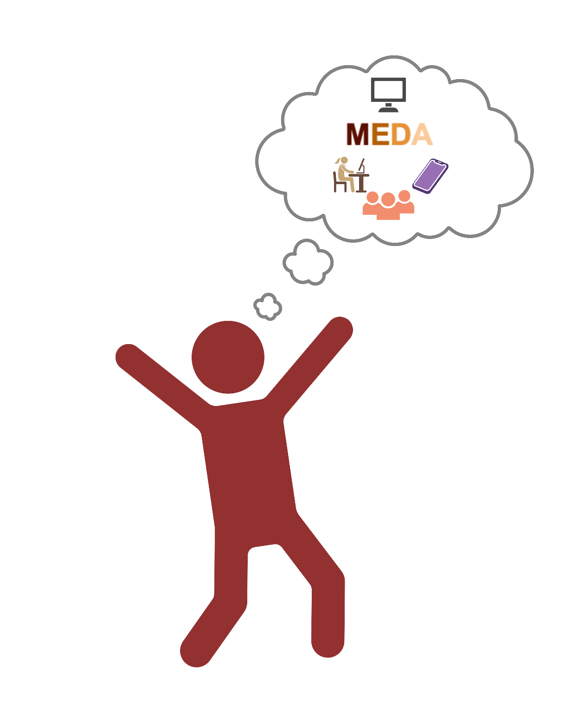Frequently Asked Questions (FAQ) about MEDA
- Do I need to be at Washington University in St. Louis (WUSTL) to participate in MEDA?
Yes, you will need to be at WashU or a WashU Alumni to participate. - What is a trainee?
Trainees include undergraduate and graduate students, postdoctoral scholars or associates, and those at Instructor level. - Will there be events to help me find a mentor?
Yes. We will have quarterly events that will allow you to connect with mentors. We are also collaborating with many groups at WashU to help develop your network. Please continue to look at Upcoming Events page. - What type of mentorship is available?
MEDA is a database and a network that allows you to create your own personalized mentorship experience. You may create a mentorship relationship with a senior level faculty or become a mentor to someone in their early stages of training (i.e undergraduate or graduate level) or develop Peer-to-Peer mentorship(postdocs/postdocs). This is up to you! - Who can be a MEDA mentor or mentee?
Currently, MEDA is focused on helping create mentorship relationships for trainees and early faculty. We welcome all faculty to become mentors and all mentees interested in participating in MEDA. - Are there resources available or someone I can contact about general questions about being a trainee?
Yes, we are here to help you be successful. We have an advocacy advisor who can help you. Please email Jen Mosher (mosherj@wustl.edu) for more details.

FAQ for Mentors
- How do I apply to become a mentor?
Please fill out the MEDA Mentor and Participant Form online form. - Do I need to be from the Department of Medicine to be a mentor?
No. - How will mentees contact me?
When you apply to become a Mentor, you will receive an email from a mentee or from a MEDA advisor to connect you with the mentee. - How much % time effort will I need to be a mentor?
This depends on you and the relationship you create with your mentee. - Will I have an assigned mentee?
No, unless you would like us to assign you one. An advantage of the program is that the mentor-mentee relationship is organic so these relationships can be more personalized. You may meet with a mentee only once or this can become a fruitful relationship and be much longer. - How will mentees find me?
They will use the database and the information you use on your application to determine if you would be a good fit as a mentor. - How many mentees can I have?
This depends on you. You may have one or more. This depends on the relationship you create with the mentee and what they are looking for. - How much time will I spend with each mentee?
A mentee may only have one question or a mentee may want to meet more frequently. This depends on you and the mentee.
FAQ for Mentees (Participants)
- How do I become a mentee?
Please fill out the MEDA Mentor and Participant Form online form. - How do I find a mentor?
You may search for mentors using the database and the pull-down information. We will also have events that will allow you to network and find mentors. - I did not find a mentor in the database that fits what I am looking for. Are the mentors listing the only ones I can contact?
If you need more assistance in finding a better fit please contact Jen Mosher and we can create or help find a mentor for you. Our mentor list is growing every day so please check back frequently. - What if I only have one question to ask a mentor?
This is perfectly fine. The program is organic in which you can simply email a mentor the question. - Is it okay to just have coffee with the mentor once and not be in contact again?
Yes, this is an advantage of the program and you can find mentors who do want to just have a quick coffee or just a chat. - I am looking for a long-term mentor, can I find one?
Yes. Once you contact a mentor you two can decide what your relationship will be.
More questions? Please contact Jen Mosher.